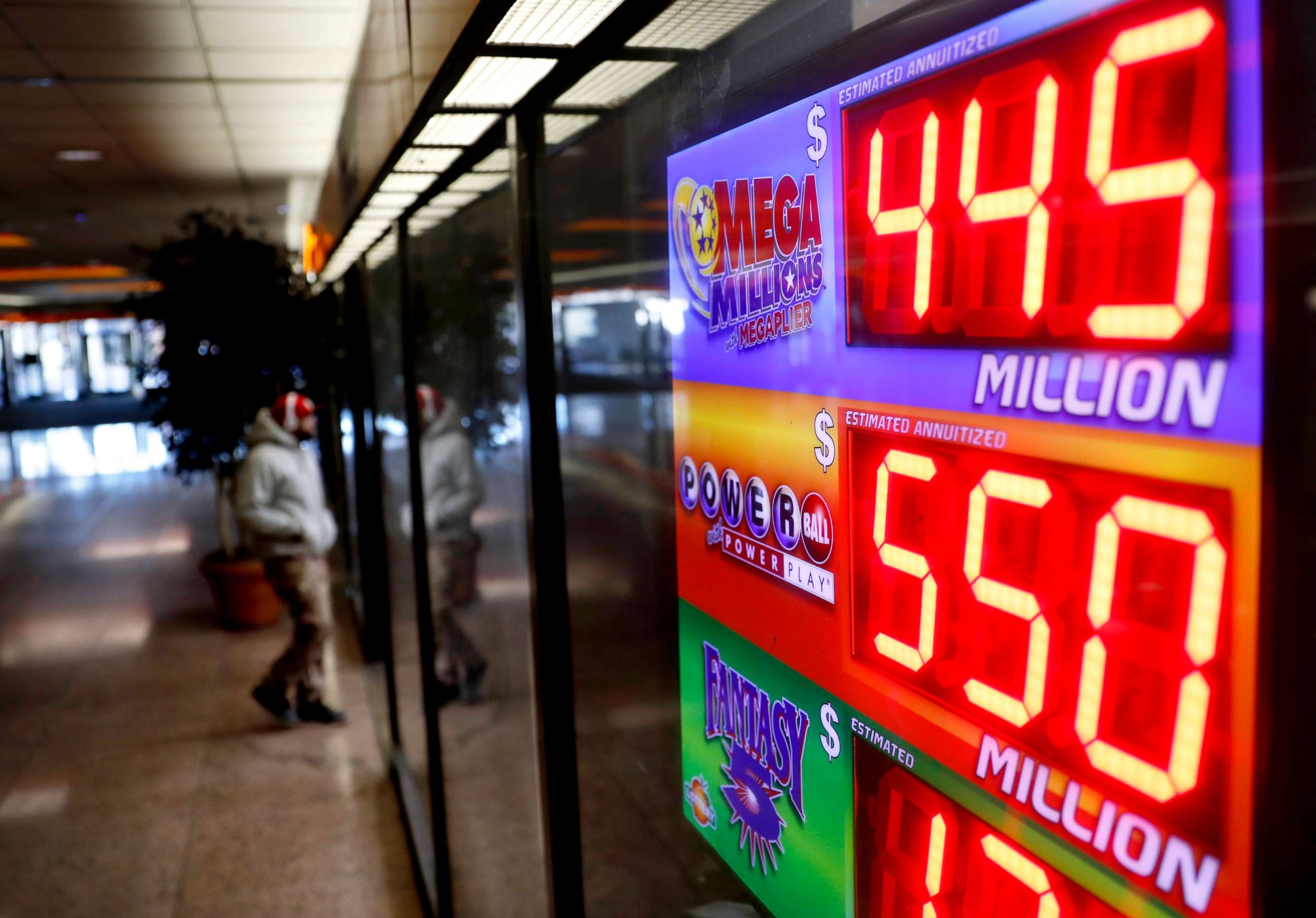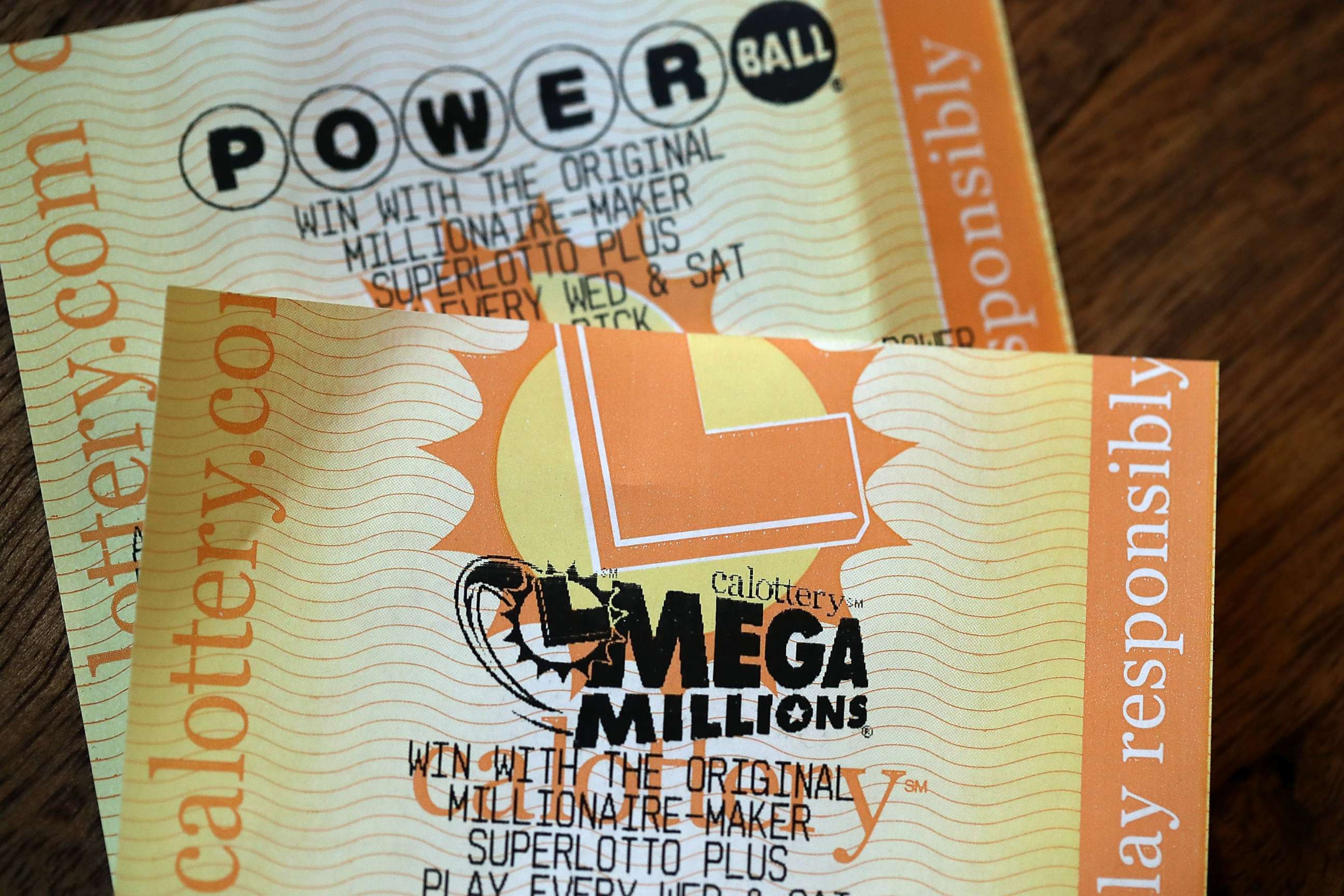Winner of $560 million Powerball is suing to retain anonymity
A Powerball winner in New Hampshire wants to maintain her privacy.
— -- A lottery winner in New Hampshire is suing the state's Lottery Commission to remain anonymous when she claims the winning $560 million ticket, saying she made “a huge mistake” when she signed the back of the ticket, the complaint obtained by ABC News shows.
In the complaint, Jane Doe is suing the commission to “maintain her privacy and to have the trustee of a designated trust be the public face of the winning ticket.”
The woman is requesting to be exempt from the “Right to Know Law” in the state, the complaint read.

The complaint referred to an example in 2016 when a trustee of the newly formed Robin Egg 2016 Trust was the face of a $487 million winning lottery ticket.
Jane Doe purchased the winning ticket from Reed’s Ferry Market in Merrimack, New Hampshire. The drawing took place on Jan. 6, and the winnings were available starting Jan. 22, according to the complaint.
The complaint stated the anonymous winner had followed the instructions on the commission’s website, and signed her name on the back of the ticket. After speaking to attorneys, she learned had a trustee signed the name instead, she could remain anonymous.

When the attorneys requested if she could have a trustee sign the ticket instead, with the commission present, they were denied.
“The request was denied on the ground that any alteration of the ticket would make it invalid,” the complaint stated.
Doe’s concern for privacy comes as no surprise, as there have been many lottery winnings that have resulted in robberies and murders. In the complaint, one of the articles referenced was from a 2012 ABC article when Dee Dee Moore was found guilty in the murder of Abraham Shakespeare, who had won $30 million in Florida in a 2009 lottery drawing.
In a statement to the Boston Globe, the state lottery’s executive director, Charlie McIntyre, said his agency understands that winning such a large sum is a “life-changing occurrence.”




